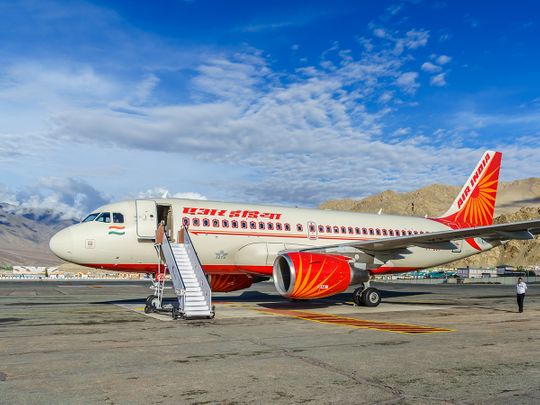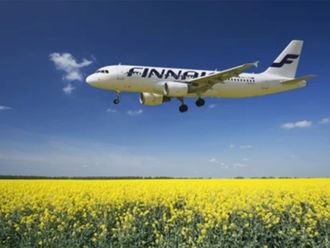
Dubai: Air India has definitely seen gains in passenger numbers since the Tata takeover - but that may have more to do with the relaxation of COVID-19 restrictions by India and the immediate increase in travel demand this has set off. The more deep-rooted changes – operational and management-wise - at Air India will take longer.
As of March 5, Air India’s domestic load factor - a measure of how well an airline is filling available seats – stood at over 80 per cent, compared to around 70 per cent before the takeover on January 27, according to data from CAPA India. “The spread of the Omicron variant dampened the traffic recovery in India and domestic air traffic witnessed a significant slump in January,” said Vivek Keerthy, analyst with CAPA India.

Cases peaked on January 21, around when the handover to the Tata group subsidiary was completed, which could be one of the reasons why passenger load factors have witnessed a steady increase since.
Keerthy said that due to the current ‘bubble’ arrangements between India and various countries it is difficult to gauge Air India’s international traffic growth. If India goes ahead with the resumption of scheduled commercial international flights starting March 27, Air India will be able to quickly make up for lost ground in long-haul sectors.
“This will allow Air India to ramp up international services to pre-Covid levels and also strategically look at launching new routes with customer preference for non-stop flights post-Covid,” said Keerthy.
Industry sources believe Air India’s current international traffic levels could still be on the higher side given that it is the only airline from India with a sizeable number of wide-body aircraft. As per its website, Air India has 49 wide-body jets in a fleet consisting of 172 aircraft.
If international flights go back to normal this month, fares on routes such as UAE-India could see a dip as airlines add additional capacities. The bubble agreements, which are negotiated on a bilateral basis with countries, placed restrictions on what airlines could offer by way of seats.
Despite the current restrictions, Air India is launching new routes and there’s also an effort underway to promote long-haul sectors that were worst hit during the pandemic. The airline will launch daily flights between Delhi and US cities – New York, Chicago, and San Francisco - from March 27. The carrier has also announced flights to Australia and Frankfurt.
“In some cases, they are re-publishing the dates and destinations because people were earlier afraid of taking flights without any stopovers,” said a spokesperson for Regal Tours in Dubai. “Passengers would suffer constant delays and last-minute flight cancellations, but that no longer seems to be the situation now.”
Closer home, Air India Express seems to be keeping busy too. The airline recently announced the deployment of additional flights on the Kozhikode-Riyadh route amid a spike in travel due to Umrah. Earlier this week, Saudi Arabia lifted most COVID-19 restrictions in the kingdom.

Now, the emphasis is to rationalize routes between the four carriers they have now - they are also looking at ordering new aircraft which will see them expand the network.
The low-cost carrier has also re-started twice-weekly flights connecting Madurai to Singapore after a hiatus even as it faces tough competition from Singapore’s Tigerair and Malaysia-based Malindo Air.
Tata Sons are expected to announce a new CEO after Turkish aviation veteran Ilker Ayci resigned before taking charge. Ayci’s appointment revealed that Tata may be looking for a CEO who has had experience taking an airline to international markets. Ayci, who quit due to the controversies surrounding his appointment, had bureaucratic ties and had dealt with labour unions in the past at Turkish Airlines.











